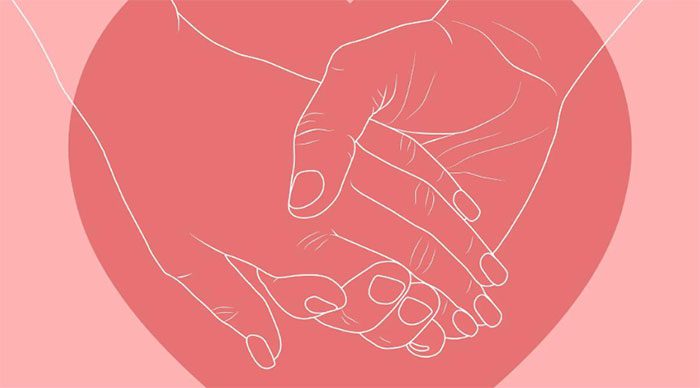According to scientists, forcing oneself to “forget” someone you truly love is incredibly difficult, much like trying to convince yourself that you are not thirsty when you really want to drink water.
Dr. Helen E. Fisher, a biological anthropologist and senior research fellow at the Kinsey Institute in New York, has been studying the scientific aspects of love since 2005.

The brain “makes it hard” for you to forget someone – (Image: GETTY IMAGES)
When analyzing brain scans of volunteers, Fisher discovered that a region of the brain related to feelings of hunger and thirst in the VTA area is also activated when you are in love.
This makes it very challenging to love someone while trying to forget “that person.” Resisting the feelings of longing for your “other half” is akin to trying to feel not thirsty when you desperately want to drink water.
Additionally, Fisher noted that besides the dopamine system being activated in a person in love, there is another brain region known as the nucleus accumbens that is also significantly affected.
This area activates with certain addictive behaviors such as smoking and gambling. It sends signals and “lights up” in those who have just fallen in love, creating a sense of addiction to love.
Thus, “breaking off a relationship” is quite similar to “going through withdrawal.” According to Fisher, to forget someone you love, it is fundamentally helpful to avoid seeing anything related to them, such as letters, gifts, or social media accounts.
This is similar to quitting smoking, where it is best to remove all cigarettes and ashtrays from your home.

Positive thinking helps heal after a breakup – (Image: GETTY IMAGES)
Associate Professor Sandra Langeslag, a psychologist at the University of Missouri-St (USA), believes that it is best to let the healing process occur naturally. Many individuals attempt to “slander” their ex-partners to forget them, but this often backfires.
Based on survey data, Sandra Langeslag estimates that the average time to truly “forget” someone and heal from emotional pain is about six months. This process can vary depending on factors such as individual personality and the duration of the relationship.
Langeslag suggests that you should focus on things that make you happier rather than on the person you are trying to stop loving. This mindset allows you to see that there are still many happy things around you, making you feel more positive about life.
According to Damon L. Jacobs, a marriage and family therapist in New York, relationships, whether romantic or platonic, contribute to the energy, joy, and fulfillment of each individual.
However, it is important to remember that they are not the only source of happiness. When you understand this, you will be able to accept the pain of a breakup more comfortably and positively, according to Damon L. Jacobs.


















































